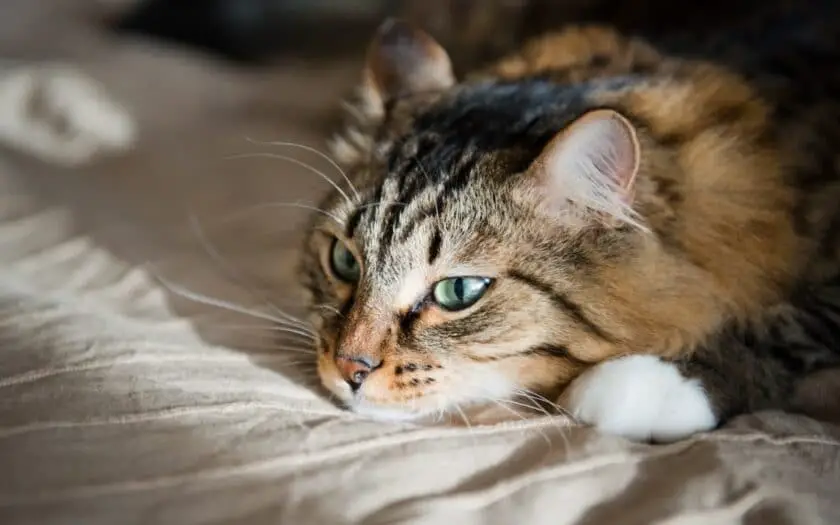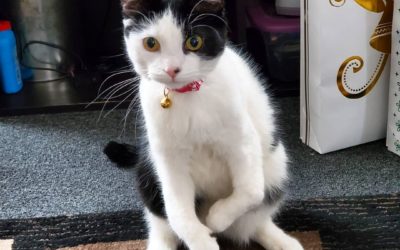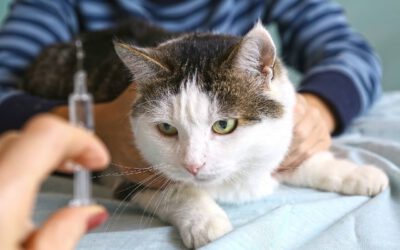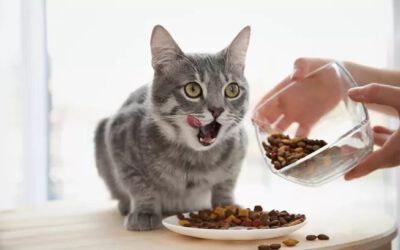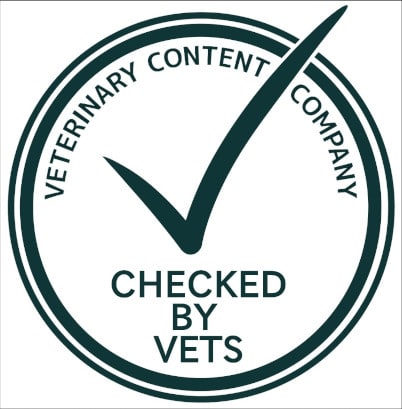
The information in this article has been checked for medical accuracy by Dr. Joannna Woodnutt, but is not meant to be used as substitute for advice or diagnosis from your local vet.
Many people experience depression at some point in their life. Something that few are aware of is the fact that our pets can also suffer from depression, anxiety and various other mental health issues.
Unfortunately for cat parents, our furry friends are good at hiding their pain and suffering. The origins of this defense mechanism can be found thousands of years ago when they were still wild animals. Cats are small, especially when compared to most other carnivores.
In order to survive, a wild cat could never let its guard down. Why? Well, it makes sense when you think about it: an obviously sick cat would make the perfect target for vultures, higher carnivores, and other territory invaders. So the cats that hid their suffering had better odds of surviving.
This defensive mechanism sadly makes recognizing the signs of illness exponentially harder. To make the diagnosis of depression even more complicated, many signs of feline depression are very similar or even produce the exact same symptoms as other common diseases such as kidney disease and cancer. Things like reduced appetite, apathy, nausea, avoidance, and withdrawal are seen in many kinds of dysfunctions, and none are exclusive to depression.
Symptoms of feline depression
1. Overeating
Is your cat suddenly eating a lot more than she normally does? This could be a symptom of underlying issues.
2. Personal hygiene
Keeping their fur clean is one of the highest priorities in the life of a cat. When you notice that your cat hasn’t been taking care of herself as she used to, something might be up.
3. Too much sleep
This one is pretty hard to keep track of since cats can easily sleep up to 18 hours per day.
4. Pacing nervously
Anxious behavior can be a more obvious clue that your cat is not entirely happy.
5. Rejecting food
Certainly not the most reliable indicator of depression, but still something to look out for.
6. Bald spots
Both males and females can get bald spots. Nine times out of ten, this means something is not right.
7. Angry faces
Always good for a laugh or two, especially when your cat did something dorky. But angry faces can actually are a telltale sign that she is not that content.
8. Insomnia
Unlike oversleeping, insomnia is pretty easy to spot.
9. Not using the cat hatch
Depressed cats sometimes revolt against the world, for example by refusing to use the cat hatch or the litter box.
Possible causes
Sometimes depression has an obvious cause. For instance, trauma- like the sudden death of a loved one- can play a part. Cats appear to grieve just like we do! Sometimes, the cause is a little harder to pinpoint- like a broken paw which prevents your cat from playing and having fun.
Of course, if your cat appears to recover quickly from its sadness, and it’s a one-off, you probably don’t need to worry too much. But sometimes, mental health can be more seriously affected- especially when it’s caused by the following things:
Diseases
As was previously discussed, the symptoms of depression are very similar to the symptoms of lots of other feline diseases. Since we can’t ask them what is wrong, we need to assume that, until proven otherwise, depression in cats is caused by an underlying illness. Getting to the bottom of what’s going on usually requires a trip to the vet, and it’s best to do this as soon as you notice symptoms that aren’t going away.
Boredom
Cats are born explorers, so it is only natural that they desire to be outside to hunt and play. However, since lots of owners decide to keep their pets inside (mostly from convenience or safety concerns) boredom has become one of the main sources of stress in domestic cats. In fact, according to PetCare, up to 40 percent of cats may act depressed as a result of boredom.
A wild cat’s life is a combination of hunting and sleeping- they would hunt in short bursts throughout the day. So when we feed them once or twice a day, from a bowl, it’s not surprising that they don’t know what else to do with themselves.
What we often see among cat parents nowadays is that they are so busy in their own lives, that they don’t have the time or the energy to attend to these needs by playing with their cat at least once a day. A shame, because domestic cats really do need frequent stimulation in order to be satisfied with their life indoors.
SAD (Seasonal Affective Disorder)
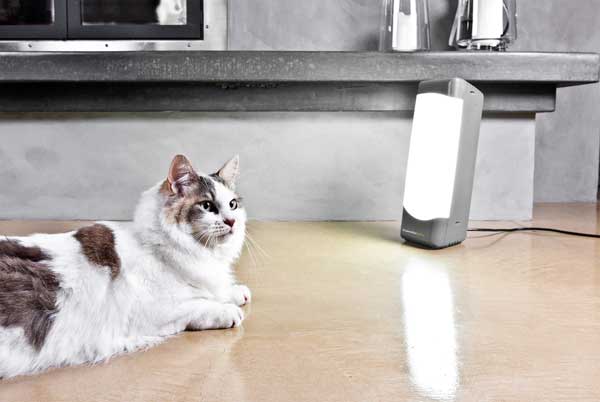
SAD is a condition that can affect the brain of animals in winter times,. When days are shorter and less sunlight is able to pass through the thick layer of clouds, our brain can start to produce fewer “happy hormones”.
It’s possible (but not yet unequivocally proven) that cats, like humans, feel the effects of this. And, like humans, SAD in indoor cats may be treatable with a special lamp that mimics sunlight. This is called light therapy. We have more info on this in the treatment section.
Aging and the loss of energy
Sometimes you won’t take note of the fact that your cat is sleeping more than usual or eating a bit less. These are normal signs of aging, due to changes in metabolism.
Another thing to keep in mind for those of you who have been with your pet a bit longer is that cats lose their energy as they age. Remember the time when your cat was a happy kitten jumping around and chasing everything that moved? It is normal that your cat will settle down a bit after a few years.
If you know your cat well, you will know when he or she is depressed. The symptoms are the same in humans. Your cat wants to hide and is certainly not in the mood to eat or play. Even a bird, in the past always a source of excitement, is no longer interesting.
How do I know whether my cat is depressed or ill?
Illness and depression are similar in cats with a lot of overlap in the symptoms. Discussing your concerns with your vet is the best way to diagnose or rule out illness.
Sometimes you won’t take note of the fact that your cat is sleeping more or eating less than usual, or you might put these things down to the natural effect of aging. But if you’re unsure, it’s better to check with a vet.
But if your cat wants to hide from everyone and is never in the mood to eat or play, you should definitely worry.
Solutions for cat depression
If your vet has established that your cat is indeed depressed, you obviously want him or her to treat this problem. Depending on your cat’s personal circumstances, there are several options available when it comes to solving cat depression, and some are backed by scientific study more than others.
Among the most used treatment styles are: giving more attention, introducing new toys, allowing your cat to go outside, homeopathy, light therapy for SAD, and lastly anti-depressants.
Introduce some new toys
The main cause among cats kept indoors (or even those who allowed out but don’t enjoy it) is boredom. You should try to stimulate your cat for at least 30 minutes every day. Buy a few different kinds of toys and see what your cat likes. Cats also like variety, so be sure to put each one away for at least a couple of days after she is done playing with it.
Spend more time together
Cats are not always as cheerful as dogs, but they do require some kind of connection. Spending more quality time with your cat can go to great lengths towards improving her mood. Take some time out to sit, talk and play with them every day. They really are not as independent as they are made out to be!
Let your cat go outside
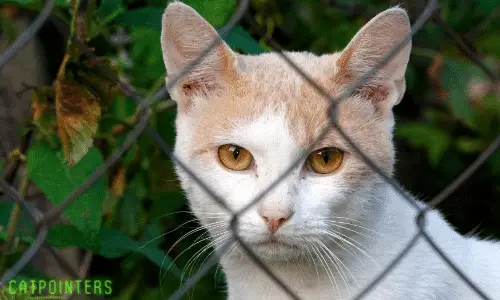
One of the most effective solutions to make your indoor cat happy again is to let them spend some time outside. But many cat owners have concerns about their cat’s safety- what if something happened? What if she doesn’t come back? In the end, this is a decision only you can make after weighing all the pros and cons.
However, there are also ways to let your cat spend time outside in a safer way. Taking them for walks on a leash, escape-proofing your garden, or building an outdoor run or ‘catio’ can all help you balance your cat’s physical safety against their mental health
Homeopathy
In certain cases where a vet is not able to determine the cause of depression, there are alternative treatment options that have shown some success. Talk to your vet about products they may recommend.
These herbs have been recommended for treating depression in humans:
- Clematis, a herb that can be used against apathy. It is most effective in the beginning stages of depression
- Elm has been known to alleviate symptoms of sadness, for example after the death of your cat’s friend or sibling. Use for a few weeks to see results.
- Gentian is used against bouts of low self-esteem. After a big fall or slip, your cat can go from being a real daredevil to shying away from even the slightest elevations. If you try this herb, make sure to celebrate every little victory with her and watch as she slowly regains her confidence!
- In serious cases of depression, the Bachblossom Gorse has been effective in combination with the homeopathic product Ignatia
Remember that many herbs and essential oils are dangerous for cats, so follow your vet’s advice or talk to a holistic veterinarian. Cat-specific herbal diffusers and pheromone diffusers are available on the market.
Anti-Depressants
Yes, cats have anti-depressants too. Among the most prescribed are TCAs (or Tricyclic Antidepressants) and SSRI’s ( Selective Serotonin Reuptake Inhabitors). These drugs will alter the levels of serotonin and norepinephrine available in the brain, which can help your cat regulate emotions and feel better about life.
Giving anti-depressants to a cat should be a last resort if other treatments have failed. It is also something you should never do on your own initiative. Let a qualified veterinarian decide if, when, and how to give these to your kitty.
Caution: Giving human anti-depressants to a cat is NOT advised. These can be fatal in even the smallest of doses. Your vet is the best person to advise on the suitability of any medications for your pet.
Frequently Asked Questions
Any toy that your cat finds interesting or wants to chase down. Often you will have to experiment with a few different toys to discover what your kitty really likes.
Our personal experience is that rods, balls and other things with unpredictable movement patterns do really well. Toys don’t have to be expensive- you can use things you find around the house!
It is possible that the sudden change in the environment caused some type of stress. Separation anxiety is another thing that your kitty possibly experienced when you left her with the veterinarian. Be extra nice to her in the coming days, and she should bounce back soon enough. If she doesn’t, check with your vet whether anything could have upset her in the clinic.
Anxiety often strikes when there are sudden major changes in the environment. From new cats moving into the neighborhood to new members of the household- and even changes in furniture or décor. If your cat is anxious, try to help them come to terms with the changes. Using calming diffusers, keeping routines the same wherever possible, and even blocking views of the changes can help. Giving them places to hide from things they find scary is important, too!
Labor is a huge event that can trigger a range of very powerful emotions in animals, from joy and excitement to debilitating fear and anxiety. It can also result in depression. In medical terms, this is known as postpartum depression. The phenomenon occurs among many other species of animals.
Giving anti-depressants designed for humans to a cat is NOT safe. These can be fatal in even the smallest of doses. Your vet is the best person to advise on the suitability of any medications for your pet.
If your cat doesn’t receive sufficient vitamins and minerals this can make them more likely to have behavioral difficulties. You should make sure your cat is on a complete and balanced diet.
Additionally, it’s not just what you feed your cat- it’s how you feed them. Puzzle feeders are an important way to encourage cats to get the exercise and mental stimulation they need to be happy. Puzzle feeders don’t have to be expensive; you can make something cheap yourself from common household materials, or buy a treat-dispenser ball.

